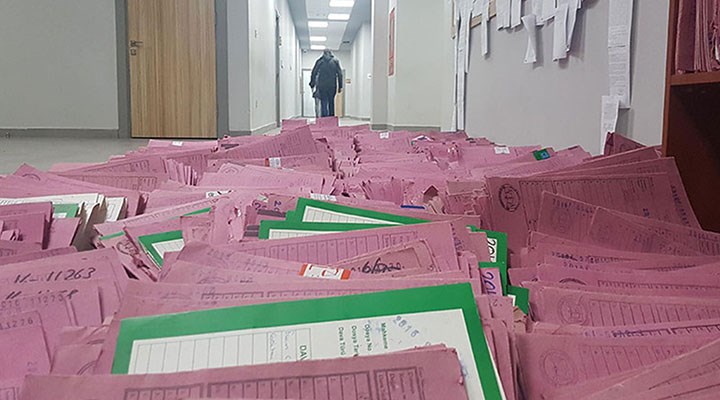The number of new debt collection cases received by enforcement offices increased by 58.9 percent between Jan. 1 and Sept. 1, 2023, compared to the same period last year, reaching a total of 9,307,000 files, local media reported on Wednesday, citing an opposition lawmaker.
Ali Öztunç, a lawmaker from the main opposition Republican People’s Party (CHP), said a total of 2,024,000 new files were received by the offices between June 16 and Sept. 1, which corresponds to 26,000 new files a day.
According to Öztunç, there are also 21,708,000 files opened through the National Judiciary Informatics System (UYAP) and pending in the enforcement offices.
“The number of citizens who are not in debt collection proceedings has become almost negligible. The purchasing power and living standards of citizens have declined,” the MP said, holding the ruling Justice and Development Party’s (AKP) unorthodox economic policies responsible for the current situation.
Öztunç pointed out that citizens cannot cover their basic expenses with their income, leading to an increase in debt. He emphasized that due to economic problems and high inflation, citizens are forced to borrow from banks, resulting in them becoming subject to debt collection proceedings due to these debts.
The lawmaker further stated that the individual loan and credit card debt owed to banks and financial institutions by citizens increased by TL 40.5 billion ($1.5 billion) to reach a total of TL 2.3 trillion ($85.6 billion) during the week of Aug. 18-25.
“Since the beginning of the year, consumer loans have increased by 31.6 percent to reach TL 1.4 trillion ($52.1 billion), while credit card debt has increased by 98 percent to reach TL 901 billion ($33.5 billion). In addition, citizens have TL 46 billion ($1.7 billion) in installments to TOKİ [the Housing Development Administration],” the MP added.
Over the past several years Turkey has been suffering from a deteriorating economy, with high inflation and unemployment as well as a poor human rights record. President Recep Tayyip Erdoğan is criticized for mishandling the economy, emptying the state’s coffers and establishing one-man rule in the country where dissent is suppressed and opponents are jailed on politically motivated charges.
The lira, which lost more than half its value against the dollar in 2021 alone and tumbled 29 percent in 2022, has shed another 25 percent since this year’s elections in May. It has been the worst performer in emerging markets for several years running due largely to economic and monetary policy concerns under Erdoğan’s government.
